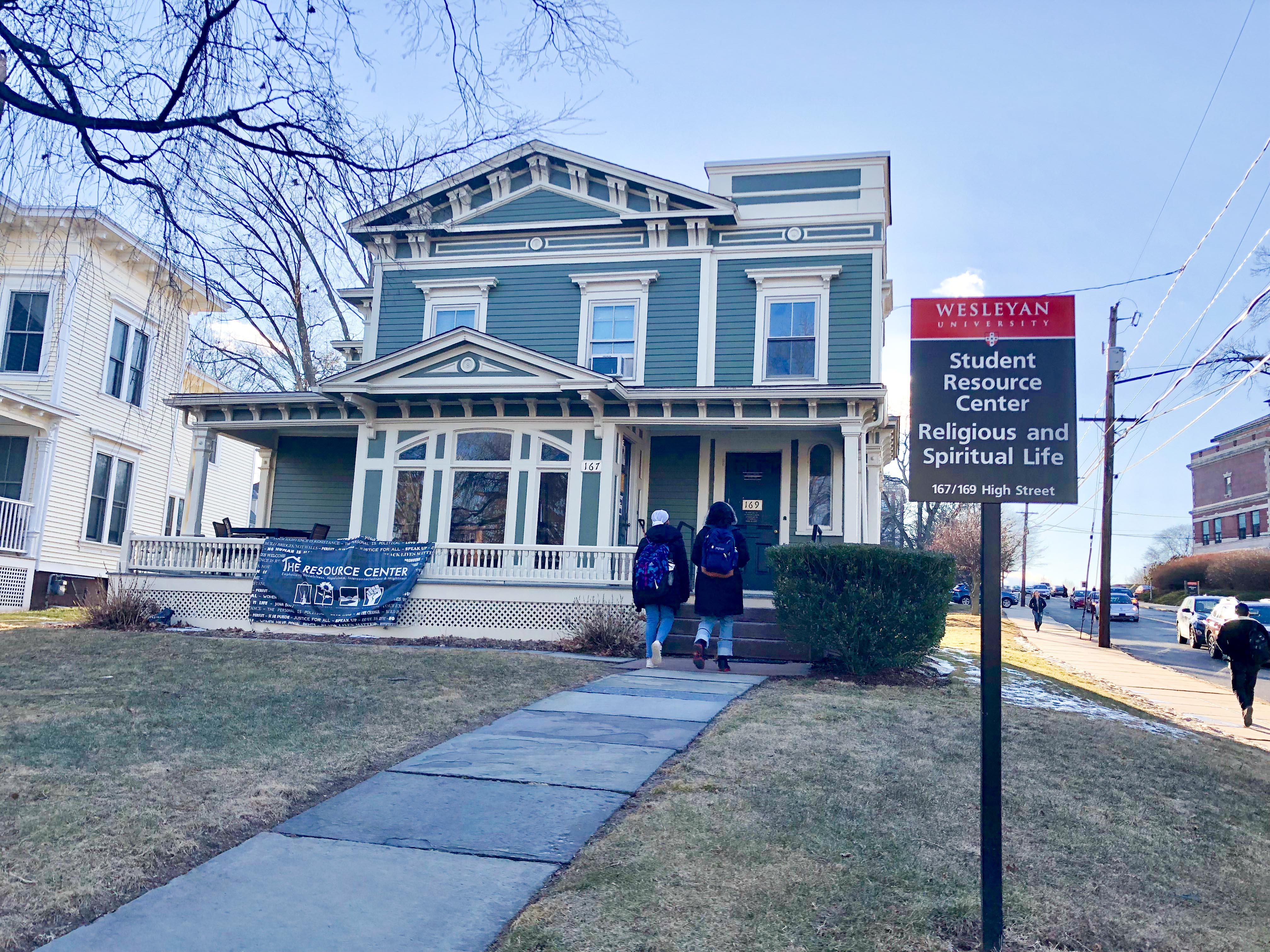
Following a successful launch last semester, the Resource Center’s Anti-Racist Book Club returns this spring with a new book and many new members. Created by Alison Williams, the Vice President for Equity and Inclusion at Wesleyan, and facilitated by Demetrius Colvin, Director of the Resource Center, the club seeks to expand the conversation on anti-racism beyond guest speakers and workshops.
“We can’t really expect that workshops and speakers are going to do our work for us, right?” Colvin said. “They do have some inspiration, some guidance, some resources, but at the end of the day, we have to then incorporate that into our lived experience, our work experience, how we’re speaking about our situation in our context. And so the reading group was meant to be that space.”
One member of the group, Art Studio Technician and Adjunct Assistant Professor of Art Kate TenEyck, echoed Colvin’s sentiments. TenEyck has been a member of the club since it began last semester.
“I thought [the book club] was a great opportunity to look at a difficult subject matter that I felt I don’t understand well,” she said. “I was forced to kind of look at my own engagement and ask myself, am I doing enough?”
This semester, the club is reading Allan G. Johnson’s “Power, Privilege, and Difference.” Colvin chose the text because of its accessibility to people at different levels of anti-racism work, as it breaks down privilege in practical writing.
Conversations surrounding ideas of privilege, power, and the structures that uphold racism have grown increasingly popular amid the national reckoning with systemic racism following the murder of George Floyd this past summer. This semester, the book club received 60 sign-ups among students and faculty after an initial school-wide email was sent out.
“I wanna say there were 12 students that signed up, but on Friday [the first meeting] I think I saw about like six or seven, which is still pretty awesome,” Colvin said.
Colvin spoke to the extracurricular work of the reading group as one of the challenges in getting students to join.
“I think that’s another thing I kind of hate about schooling,” he explained. “Not about education. I mean about schooling, because you get caught up in this idea, ‘well, I’m not getting credit for it, what am I doing?”
For TenEyck, the biggest challenge isn’t the extra reading itself, but finding the time to complete it. Despite this concern, Colvin believes there is much to be gained from doing independent study and then discussing with a group.
“[A]fter doing a deep reading [of the book] and actually retaining the information, [I had] a conversation with the author,” he said. “Both last semester and this semester are turning out to be really engaging for [students] getting a lot out of it.”
Since she was part of the club last semester, many of the ideas that are introduced in this semester’s book did not shock TenEyck, but have still helped her to look at them in a new light.
“I’m more comfortable talking about race and the contents in the books,” TenEyck said. “Some of the content was not surprising at all. And other parts of the content made me think about things differently, which I appreciate.”
After just two weeks, members said that an important cohesion is forming as the group engages in difficult conversations surrounding racism. Although the group has just started, it’s still up for debate whether or not more members of the Wesleyan community can join. Since the group has already started, joining late might not give people the full experience. Additionally, creating a group dynamic is important to the effectiveness of the work.
Being part of a book group like the Anti-Racism Book Club requires participants to be open to potentially uncomfortable dialogue.
“It’s important that we get used to dissonance, right? Because doing this work now for over 11 years, [I know] people want the easily packaged answers,” Colvin said.
“I actually feel a shift in my consciousness and understanding,” TenEyck explained. “I wish more people were experiencing that. I feel like a lot of people are afraid to look at the content and talk about it.”
The conversations aren’t always going to be easy. Colvin stressed the importance of building trust within the group, which is difficult when they have to meet over Zoom due to the pandemic. He emphasized the necessity of group guidelines and having members only discuss whatever they’re comfortable sharing.
“I think it’s sad that there’s a lot of scenarios in which people are afraid to talk about it,” TenEyck said. “Like you walk into a room and you look around, and you don’t know if it’s safe to talk about those things, especially right now in this country, when you know, people get really ugly, really fast.”
Colvin wants students to learn and grow from the club, and combine the information they gain from reading and discussing the book with action in their everyday lives.
“Whether in this group or any of the work that I do with students, how do you be more comfortable in conflict?” he asked. “Speak on your own doubts. And your insecurit[ies are not] things that are shameful things you have to hide, but things you have to voice and bring into your relationships.”
Talia Zitner can be reached at tzitner@wesleyan.edu.


Leave a Reply